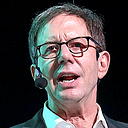Jury Selection in the Age of Trump
Can this trial be saved?
The justice system thrives on a core tenet: the impartiality of the jurors. A jury’s role is to examine facts presented during the trial, deliberating free from prejudice or bias. This is especially crucial in cases that possess vast political ramifications and public sentiments, like the forthcoming trials of Donald Trump and his 18 indicted co-conspirators.
But can impartiality be assured in a time when political divides seem to infiltrate every facet of life? How can we know that jurors won’t be influenced by preconceived opinions or external pressures?
To address this, a significant component of the selection process — voir dire — is where potential jurors are questioned about their backgrounds and potential biases. The aim is to eliminate any individual whose preconceived notions might hinder a fair trial. But in these times of deep division and emotional investment, the questions we ask need to be more discerning, more probing, and introspective.
Consider these two critical inquiries:
1. “Tell me about two instances from your life where you were deeply, emotionally and singularly committed to a belief and where new facts caused you to change your mind. What was it you believed and what were the facts that caused you to change your mind?”
2. “Tell me about a time when as right as you thought you were is as wrong as you turned out to be. What was it that you were so certain about and what happened to cause you to realize you were wrong?”
So, why the emphasis on these questions?
The Fluidity of Belief
In life, beliefs and values serve as our compass. They guide our decisions and shape our perceptions. However, our ability to reassess and recalibrate those beliefs in light of new evidence is a testament to our intellectual and emotional maturity.
The first question taps into this ability. By exploring instances where prospective jurors shifted their beliefs due to new data, we can gauge their capacity for adaptability and flexibility. We need jurors who can set aside their personal biases, weigh the evidence presented, and come to a just conclusion. If someone hasn’t changed a deeply held belief despite overwhelming evidence, it’s questionable whether they can fairly evaluate new data in a courtroom.
The Hubris of Certainty
The second question delves into humility. It’s human nature to occasionally be overconfident, convinced of our righteousness, only to later recognize our errors. Admitting we were wrong takes a certain level of introspection and humility. In the context of a trial, especially one as polarizing as that of Trump and his associates, this characteristic is invaluable. We need jurors who can question their assumptions, who can weigh evidence without the hubris of overconfidence clouding their judgment.
Both questions aim at the heart of cognitive flexibility and introspection. They seek jurors capable of change and self-examination. And in an era where opinions are increasingly entrenched, finding such individuals might seem like searching for a needle in a haystack.
The Trump Trials: A Unique Challenge
The cases facing Donald Trump and his co-conspirators are not just any other legal proceedings. Given the former President’s divisive nature and his uncanny ability to evoke passionate reactions from both supporters and detractors, ensuring a fair trial is paramount.
The media spectacle, potential external pressures, and the omnipresent political undercurrent make the task of finding unbiased jurors even more daunting. It’s not just about asking if they’ve formed opinions about the case or if they have any biases against the defendant. We need to delve deeper, examining their ability to adapt, change, and introspect.
In Conclusion
Our legal system is designed to offer everyone a fair trial. But this fairness is not merely a procedural checklist. It’s about ensuring that those who sit in judgment can do so impartially, not bound by the shackles of their biases. The upcoming trials, in the shadow of the Trump era, make the voir dire process more critical than ever. We need jurors who can reassess, recalibrate, and reflect, not just for the sake of the accused but for the sanctity of justice itself.
